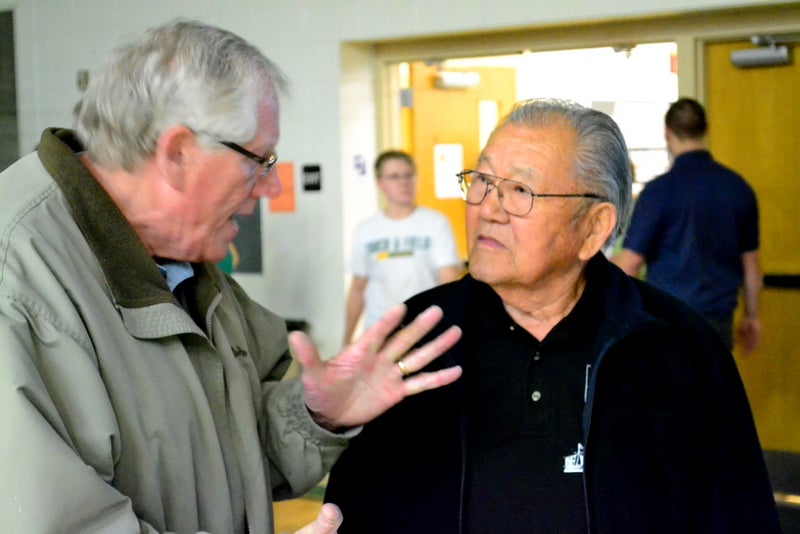In 1942, in the wake of the Japanese attack on Pearl Harbor, Executive Order 9066 was passed requiring all Japanese Americans to be housed in government internment camps. Two survivors of those camps, Tets Furukawa and Howard Zenimura, shared their stories alongside historian Kerry Yo Nakagawa.
Furukawa and Zenimura were both sent to the same internment camp in Arizona at the the Gila River War Relocation Center. In order to deal with the hardships of living in a camp, the two, as well as many other people, looked to baseball, America’s pastime. Howard’s father, Kenichi Zenimura, inspired many in the camp to pursue baseball and helped break down the race barrier in baseball when it came to Japanese-Americans.
Although these men have been through so much, they were willing to forgive. Tets Furukawa made it clear, “We have to have forgiveness in our heart…If we don’t have forgiveness, we will not have a peaceful end.” Bitterness toward the government existed but what never faded was these men’s love for the United States. Tets put it, “Despite what our communities went through…this still is the greatest country in the world and I wouldn’t live anywhere else.”
“History doesn’t change, only the names do.” is a point that Kerry Yo Nakagawa made at a presentation in Edgar. The three men were in Central Wisconsin to educate middle and high school students through a program called A Walk in Their Shoes, which was headed by Edgar Elementary School Teacher, Colin Hanson. Relating events like this in the past to today’s issues is imperative to the program, making it easier for students to relate. The main reason for the giving of this presentation can be put best in Nakagawa’s words, “The youth is our hope.”
By Maxwell Harding
Episode Credits
- Glen Moberg Host
- Tets Furukawa Guest
- Howard Zenimura Guest
- Kerry Yo Nakagawa Guest
Wisconsin Public Radio, © Copyright 2024, Board of Regents of the University of Wisconsin System and Wisconsin Educational Communications Board.
